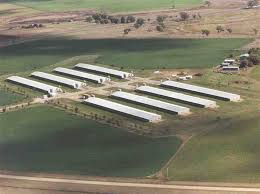Poultry Farm Business sent.
Poultry business refers to the commercial production and sale of domesticated birds, primarily chickens, for meat, eggs, and other poultry products. It is a significant sector in the agriculture industry and provides a valuable source of food and income worldwide.
Research and Planning: Begin by conducting thorough research on poultry farming, market demand, competition, regulations, and best practices. Develop a comprehensive business plan that includes your goals, target market, financial projections, and production strategies.
Choose the Type of Poultry Farming: Decide whether you want to focus on meat production (broilers), egg production (layers), or a combination of both. Each requires different infrastructure, management practices, and marketing strategies.
Housing and Infrastructure: Construct or set up suitable housing facilities for your poultry, ensuring proper ventilation, lighting, and temperature control. Adequate space, nesting areas, and feeding and watering systems are also essential.
Procure Quality Breeds and Stock: Select healthy and productive poultry breeds suitable for your chosen production type and local conditions. Purchase chicks or hatching eggs from reputable suppliers or consider breeding your own stock.
Feeding and Nutrition: Provide a balanced and nutritious diet to your poultry. Consult with experts or nutritionists to formulate appropriate feed rations based on the age and production stage of your birds. Consider incorporating locally available feed ingredients to reduce costs.
Health and Disease Management: Implement strict biosecurity measures to prevent the introduction and spread of diseases. Consult with veterinarians to develop vaccination programs, regular health checks, and disease prevention strategies. Promptly address any health issues that arise.
Marketing and Sales: Identify your target market, whether it's local consumers, restaurants, supermarkets, or wholesale distributors. Develop effective marketing strategies to promote your products, such as branding, packaging, online presence, and participating in local farmer's markets or trade shows.
Financial Management: Maintain detailed records of expenses, income, and inventory. Monitor production costs, pricing, and profit margins to ensure the financial sustainability of your business. Consider seeking guidance from accountants or financial advisors.
Regulatory Compliance: Familiarize yourself with local regulations and permits related to poultry farming, food safety, and environmental standards. Comply with the necessary licensing, labeling, and quality control requirements.
Continuous Learning: Stay updated with the latest advancements, research, and industry trends in poultry farming. Join relevant associations, attend workshops, and network with other poultry farmers to learn from their experiences and stay ahead of market changes.
Equipment and Supplies: Invest in high-quality equipment and supplies necessary for poultry farming, such as feeders, drinkers, egg incubators, brooders, and temperature control systems. Ensure regular maintenance and replacement when needed.
Waste Management: Develop a waste management plan to handle manure and other waste generated by your poultry farm. Consider composting, waste recycling, or collaborating with nearby farms for manure disposal or conversion into organic fertilizers.
Risk Management: Identify potential risks and develop strategies to mitigate them. This includes having insurance coverage for your poultry farm, implementing biosecurity measures, and creating contingency plans for emergencies like disease outbreaks, natural disasters, or market fluctuations.
Scale and Expansion: Determine the scale of your operation based on market demand, available resources, and your business goals. You can start small and gradually expand as you gain experience and confidence in managing your poultry business.
Sustainability Practices: Incorporate sustainable practices into your poultry farming operations. This can include optimizing resource usage, implementing energy-efficient systems, reducing waste, and exploring renewable energy options. Emphasize animal welfare and consider implementing practices that provide your birds with a comfortable and stress-free environment.
Value-added Products: Consider diversifying your product range by developing value-added products. For example, you can explore options such as processed poultry products, ready-to-cook meals, organic or free-range poultry, or specialty eggs. This can help differentiate your business and cater to specific consumer preferences.
Technology Adoption: Stay abreast of technological advancements in the poultry industry. Explore the use of automation, data analytics, and digital tools to optimize production processes, improve efficiency, and enhance decision-making. This can include automated feeding systems, remote monitoring of poultry houses, or data-driven analysis of production performance.
Networking and Collaboration: Engage with other poultry farmers, industry experts, and suppliers to exchange knowledge, share best practices, and explore collaboration opportunities. Attend industry conferences, join online forums, or participate in local agricultural organizations to expand your network and stay connected with the poultry community.
International Standards and Certifications: If you intend to export your poultry products or cater to specific markets, consider obtaining relevant certifications such as organic certification, GlobalG.A.P., or animal welfare certifications. These certifications can enhance the marketability and value of your products.
Succession Planning: If you plan for your poultry business to continue for the long term, consider developing a succession plan. Determine how you will transition the business to the next generation or new ownership and ensure a smooth transfer of knowledge and operations.
Remember, the poultry industry can be highly competitive, so continuous learning, adaptation to market trends, and innovation are crucial for long-term success.
Follow me more details
Click on the link join now 👇👇























Comments
Post a Comment